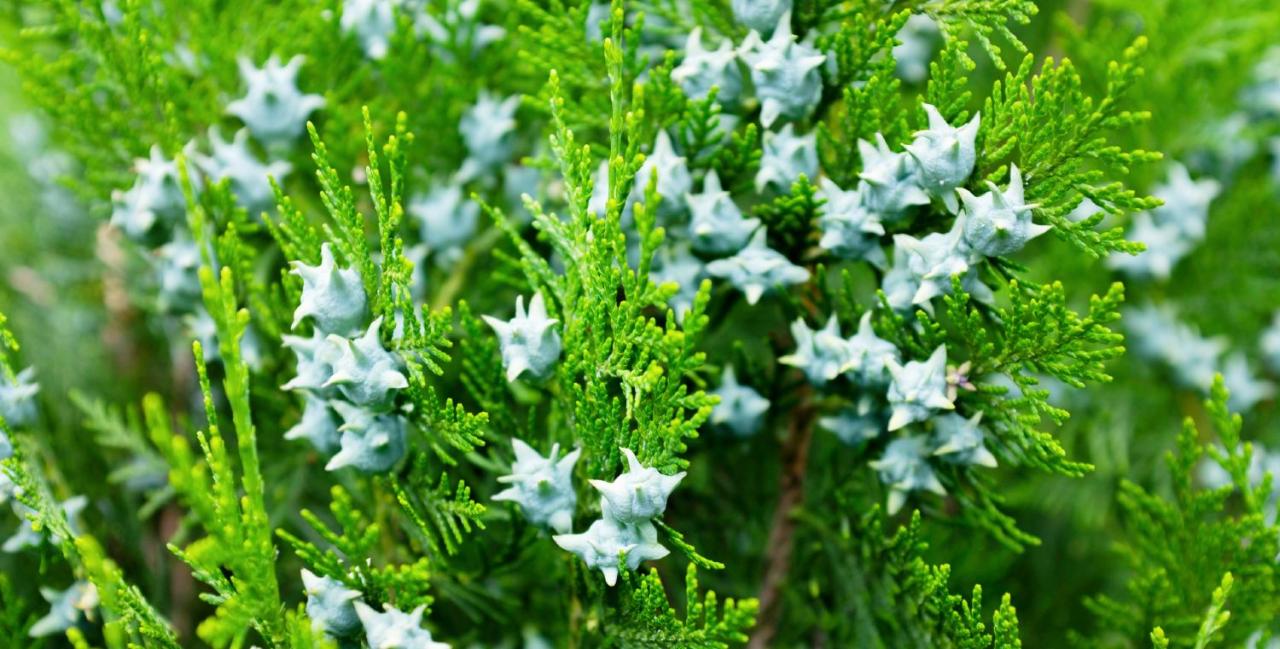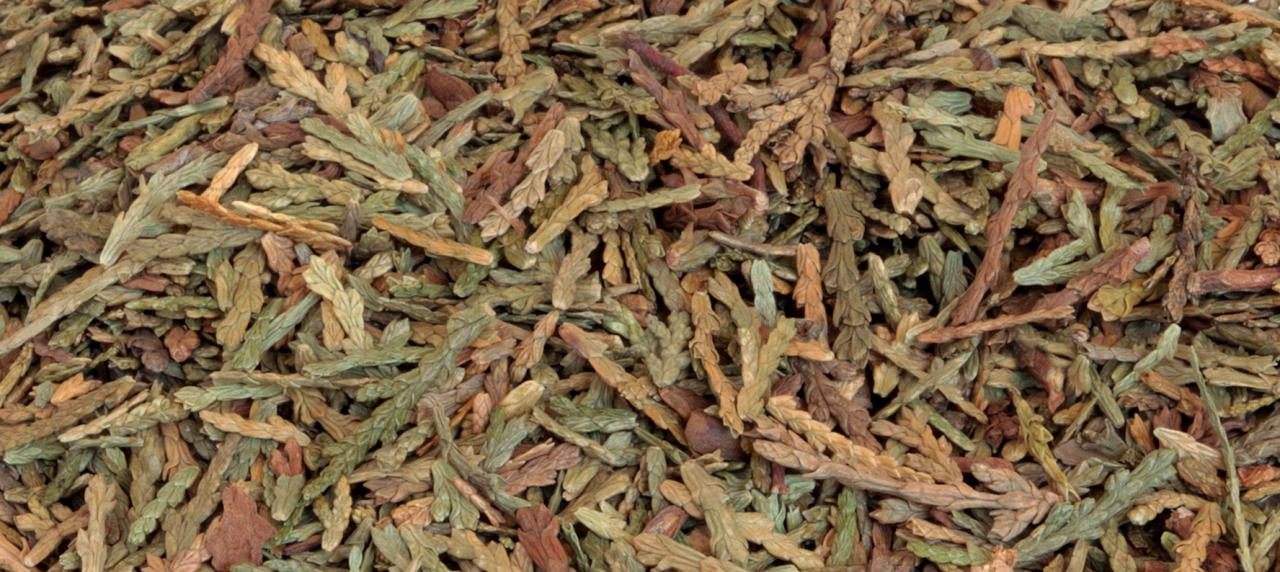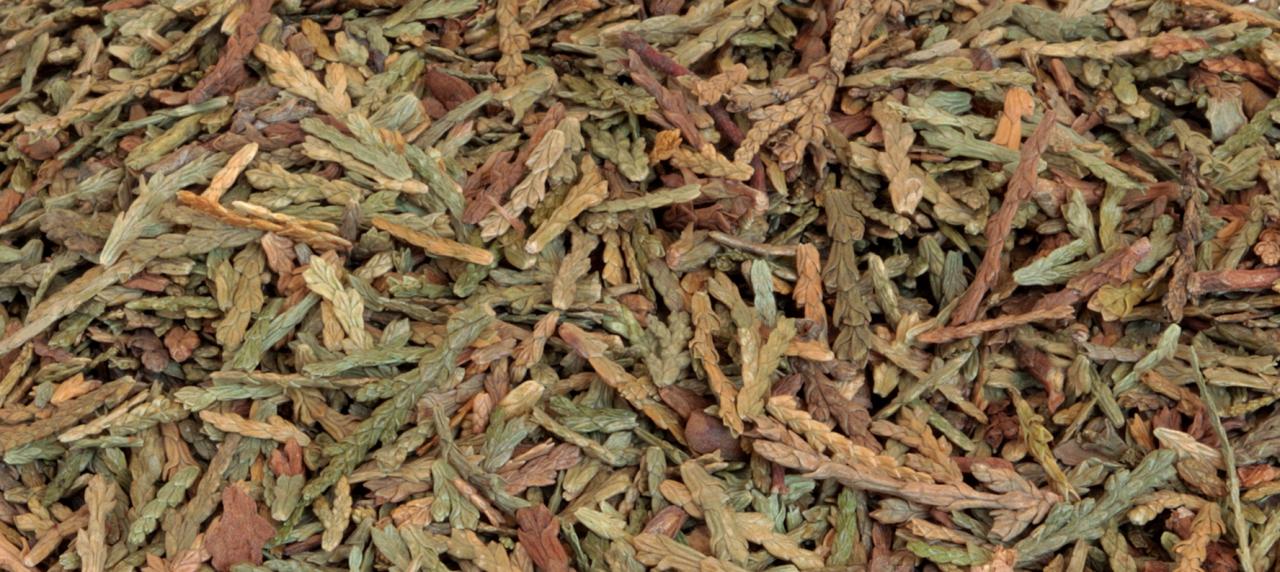Biota Herb: How This Herbal Wonder Can Help You. Biota herb, also known as Thuja occidentalis, is a coniferous evergreen tree native to North America. For centuries, indigenous cultures have revered this plant for its medicinal properties, incorporating it into traditional remedies to address a range of ailments.
Biota herb’s popularity stems from its unique blend of bioactive compounds, including essential oils, flavonoids, and tannins, which contribute to its potential health benefits.
This article delves into the world of Biota herb, exploring its traditional uses, scientific research, and potential applications in modern health and wellness practices. We will discuss the potential benefits of Biota herb for respiratory health, immune function, and overall well-being.
We will also examine the different ways to incorporate Biota herb into your daily routine, from teas and tinctures to supplements and herbal remedies.
Introduction to Biota Herb
Biota herb, scientifically known as _Platycladus orientalis_, is a coniferous evergreen tree native to eastern Asia, particularly China, Korea, and Japan. It has been used for centuries in traditional medicine and is now gaining recognition for its potential therapeutic benefits.
History of Traditional Uses
Biota herb has a long history of traditional uses in various cultures. In traditional Chinese medicine, it has been used to treat a wide range of ailments, including coughs, asthma, and skin infections. It is also believed to have anti-inflammatory and antioxidant properties.
In Korean traditional medicine, Biota herb is used for similar purposes, and it is also considered to be beneficial for improving blood circulation and promoting wound healing.
Biota Herb, with its potent blend of natural ingredients, can be a powerful tool for enhancing your well-being. Just as nurturing your physical health requires proper care, so too does your indoor garden thrive with the right techniques. Learn how to cultivate vibrant and robust African Violets through propagation, a process that unlocks their full potential, by visiting How to Propagate African Violets for Bigger, Healthier Plants.
Similarly, Biota Herb empowers you to achieve optimal health and vitality, allowing you to flourish from within.
Key Active Compounds
Biota herb contains various bioactive compounds that contribute to its medicinal properties. Some of the key active compounds include:
- Bioflavonoids:These compounds have antioxidant and anti-inflammatory properties, protecting cells from damage caused by free radicals.
- Tannins:Tannins are astringent compounds that can help to reduce inflammation and protect the skin.
- Volatile Oils:These oils contain various compounds, such as terpinen-4-ol and α-pinene, which have antimicrobial and anti-inflammatory properties.
Health Benefits of Biota Herb

Biota herb, scientifically known asPlatycladus orientalis*, has been used in traditional medicine for centuries. Its potential health benefits have garnered attention in modern times, with scientific research exploring its various therapeutic properties.
Respiratory Health
Biota herb has been traditionally used to address respiratory ailments. Studies suggest that its constituents may possess anti-inflammatory and expectorant properties, potentially aiding in the management of respiratory conditions. For instance, a study published in theJournal of Ethnopharmacology* investigated the effects of Biota herb extract on airway inflammation in an animal model.
The study found that the extract significantly reduced airway inflammation and mucus production, suggesting its potential for treating respiratory conditions like bronchitis and asthma.
Immune Function
Biota herb may play a role in supporting immune function. Studies have shown that certain compounds found in Biota herb possess immunomodulatory properties, meaning they can modulate the immune system’s response. For example, a study published in theInternational Journal of Immunopharmacology* explored the effects of Biota herb extract on immune cell activity.
The study revealed that the extract stimulated the production of immune cells and enhanced their activity, suggesting its potential to boost immune function and combat infections.
Other Potential Health Benefits
Beyond its respiratory and immune-boosting properties, Biota herb may offer other health benefits. Its antioxidant properties have been investigated, with studies suggesting that it can neutralize free radicals and protect cells from damage. For instance, a study published in theFood Chemistry* journal evaluated the antioxidant activity of Biota herb extract.
The study found that the extract exhibited significant antioxidant activity, suggesting its potential for preventing oxidative stress and its associated health problems.
How to Use Biota Herb
Biota herb, also known as thuja, can be used in various ways to reap its potential health benefits. It’s important to consult with a healthcare professional before incorporating Biota herb into your routine, especially if you have any underlying health conditions or are taking medications.
Methods of Consumption
Biota herb is typically consumed in the following forms:
- Teas:Biota herb can be steeped in hot water to make a tea. This is a common and convenient method of consumption.
- Tinctures:Tinctures are concentrated extracts of Biota herb in alcohol. They are typically taken in small doses, usually diluted in water or juice.
- Supplements:Biota herb is also available in capsule or tablet form. These supplements offer a convenient and consistent dosage.
Recommended Dosages and Frequency, Biota Herb: How This Herbal Wonder Can Help You
The recommended dosage of Biota herb varies depending on the form of consumption and the specific health condition being addressed. It’s essential to consult with a healthcare professional to determine the appropriate dosage for your individual needs. Generally, starting with a low dose and gradually increasing it as needed is recommended.
Precautions and Potential Interactions
Biota herb can interact with certain medications and may cause side effects in some individuals. It’s crucial to consult with a healthcare professional before using Biota herb, especially if you:
- Are pregnant or breastfeeding.
- Have any allergies or sensitivities.
- Are taking medications, particularly blood thinners or immunosuppressants.
- Have any underlying health conditions, such as kidney or liver disease.
Potential side effects of Biota herb include:
- Skin irritation or rash.
- Gastrointestinal upset.
- Allergic reactions.
- Increased risk of bleeding.
It’s important to note that Biota herb should not be used as a substitute for conventional medical treatment. If you experience any adverse effects, discontinue use and consult with a healthcare professional immediately.
Biota Herb in Traditional Medicine
Biota herb, also known as thuja, has a long history of use in traditional medicine systems worldwide. Its diverse applications reflect its versatility and effectiveness in addressing various health concerns.
Uses of Biota Herb in Traditional Medicine Systems
Biota herb has been used in traditional medicine systems for centuries, with each system employing unique methods and applications. Here is a comparison of its uses in different systems:
Traditional Medicine System |
Specific Use |
Dosage |
Preparation Method |
|---|---|---|---|
Traditional Chinese Medicine (TCM) |
Treatment of respiratory ailments, such as coughs, asthma, and bronchitis. |
10-15 grams of dried herb, decocted in water for 15-20 minutes. |
Boil the herb in water for 15-20 minutes, then strain the liquid. Drink 1-2 cups daily. |
Ayurvedic Medicine |
Treatment of skin infections, wounds, and ulcers. |
5-10 grams of dried herb, ground into a paste and applied topically. |
Grind the herb into a fine paste and apply it directly to the affected area. |
Native American Medicine |
Treatment of urinary tract infections, fungal infections, and parasitic infestations. |
1-2 teaspoons of dried herb, steeped in hot water for 10-15 minutes. |
Steep the herb in hot water for 10-15 minutes, then strain the liquid. Drink 1-2 cups daily. |
Scientific Research on Biota Herb
While traditional medicine has long recognized the potential benefits of Biota herb, scientific research is increasingly exploring its therapeutic properties. Studies have investigated its effects on various health conditions, shedding light on its potential mechanisms of action.
Key Findings from Scientific Studies
Numerous studies have investigated the potential therapeutic effects of Biota herb, focusing on its anti-inflammatory, antioxidant, and antimicrobial properties.
- A study published in the Journal of Ethnopharmacology found that Biota herb extract exhibited significant anti-inflammatory activity in a rat model of inflammation. The researchers attributed this effect to the presence of bioactive compounds like flavonoids and tannins.
- Another study, published in the International Journal of Molecular Sciences, demonstrated the antioxidant potential of Biota herb extract. The study found that the extract effectively scavenged free radicals, reducing oxidative stress in cell cultures.
- Research on the antimicrobial properties of Biota herb has shown promising results. A study published in the Journal of Microbiology and Biotechnology found that Biota herb extract exhibited significant antibacterial activity against several common pathogens, including E. coli and Staphylococcus aureus.
Potential Mechanisms of Action
The potential mechanisms of action of Biota herb are attributed to its rich phytochemical profile, which includes flavonoids, tannins, terpenoids, and other bioactive compounds.
- Anti-inflammatory effects:Biota herb’s anti-inflammatory activity is likely mediated by its ability to inhibit the production of pro-inflammatory cytokines, such as TNF-α and IL-6, which are key mediators of inflammation.
- Antioxidant effects:The antioxidant properties of Biota herb are attributed to its ability to scavenge free radicals, reducing oxidative stress and protecting cells from damage. This is crucial for preventing chronic diseases linked to oxidative stress, such as cancer and heart disease.
- Antimicrobial effects:Biota herb’s antimicrobial activity is likely due to the presence of compounds that disrupt the cell membranes of bacteria and fungi, inhibiting their growth and proliferation.
Ongoing Research on Biota Herb
Ongoing research continues to explore the potential benefits of Biota herb in various areas, including:
- Neuroprotective effects:Studies are investigating the potential of Biota herb to protect brain cells from damage and improve cognitive function.
- Anti-cancer effects:Researchers are exploring the potential of Biota herb to inhibit cancer cell growth and proliferation.
- Cardioprotective effects:Studies are investigating the potential of Biota herb to reduce the risk of heart disease by improving cardiovascular health.
Biota Herb in Modern Applications
Biota herb, also known as thuja, has found a prominent place in modern herbal medicine and natural remedies, reflecting its long-standing use in traditional practices. Its versatility extends to various health and wellness products, showcasing its adaptability in contemporary lifestyles.
Biota Herb in Modern Herbal Medicine
Biota herb’s application in modern herbal medicine primarily revolves around its potential to support respiratory health, immune function, and skin conditions.
- Respiratory Support:Biota herb is often incorporated into herbal teas, tinctures, and supplements for its potential to alleviate symptoms associated with respiratory ailments, such as coughs, congestion, and bronchitis. Its anti-inflammatory and expectorant properties may contribute to its effectiveness in these areas.
- Immune Function:Some herbalists believe that biota herb can bolster the immune system, making it a potential aid in combating infections and promoting overall well-being. Its antimicrobial properties may play a role in its immune-enhancing effects.
- Skin Health:Biota herb’s antifungal and antibacterial properties make it a potential ingredient in topical remedies for skin conditions like acne, eczema, and psoriasis. It may also contribute to wound healing and skin regeneration.
Biota Herb in Health and Wellness Products
Biota herb’s versatility has led to its inclusion in a range of health and wellness products designed to address specific concerns:
- Essential Oils:Biota herb essential oil is often used in aromatherapy for its calming and purifying properties. It is sometimes incorporated into diffusers, massage oils, and bath products to promote relaxation and create a soothing atmosphere.
- Dietary Supplements:Biota herb is available in various forms, including capsules, tablets, and liquid extracts. These supplements are often marketed for their potential to support respiratory health, immune function, and overall well-being.
- Skin Care Products:Biota herb extracts are incorporated into skincare products, such as lotions, creams, and serums, for their potential to soothe irritated skin, reduce inflammation, and promote skin clarity.
Biota Herb in Lifestyle Practices
Biota herb’s integration into modern lifestyles extends beyond its use in specific products.
- Herbal Teas:Biota herb is commonly used to create herbal teas, often combined with other herbs like elderberry or peppermint, for their synergistic effects. These teas are enjoyed for their potential to support respiratory health, immune function, and relaxation.
- Aromatherapy:Biota herb essential oil is often used in aromatherapy practices to promote relaxation, clear the mind, and create a sense of well-being. It is often diffused in homes or offices to create a calming atmosphere.
- Home Remedies:Biota herb is sometimes incorporated into home remedies for conditions like coughs, colds, and skin irritations. These remedies may involve using biota herb in teas, gargles, or topical applications.
Growing and Harvesting Biota Herb: Biota Herb: How This Herbal Wonder Can Help You
Cultivating Biota herb, also known as Thuja orientalis, requires specific conditions to ensure optimal growth and yield. Understanding the plant’s needs and implementing appropriate cultivation practices can significantly enhance its potency and therapeutic value.
Biota Herb, a natural remedy with a rich history, offers a range of potential benefits for your well-being. From boosting immunity to promoting relaxation, its versatility makes it a popular choice for those seeking natural solutions. If you’re looking to cultivate your own herbal remedies, you might find inspiration in the world of African Violets.
Learn how to propagate these beautiful plants through leaf cuttings by visiting Unlock the Secrets of African Violet Leaf Cuttings , and you’ll be on your way to creating your own personal garden sanctuary. Like African Violets, Biota Herb can be a rewarding addition to your home, offering both beauty and potential health benefits.
Ideal Growing Conditions
Biota herb thrives in well-drained soil with a slightly acidic to neutral pH range (6.0-7.0). The soil should be rich in organic matter, providing essential nutrients for healthy growth. Biota herb prefers full sun to partial shade, receiving at least six hours of direct sunlight daily.
It is crucial to choose a location with good air circulation to prevent fungal diseases.
Harvesting and Drying
Harvesting Biota herb is typically done during the late summer or early fall when the plant is at its peak potency. The best time to harvest is on a dry day, after the morning dew has evaporated. Harvest the leaves and twigs, ensuring they are free from disease or insect damage.
The harvested material should be dried promptly to preserve its medicinal properties.Drying can be achieved using various methods, including air drying or using a dehydrator. Air drying involves spreading the harvested material in a single layer on a screen or tray in a well-ventilated, dark, and dry place.
Ensure the drying process is gradual and uniform to prevent mold or mildew growth. If using a dehydrator, set the temperature to 95-105°F (35-40°C) and dry the material until it becomes brittle and crumbles easily.
Storing Biota Herb
Proper storage is essential to maintain the potency and effectiveness of Biota herb. Once dried, store the herb in airtight containers in a cool, dark, and dry place. Avoid storing it in direct sunlight or high humidity, as these conditions can degrade the active compounds.
Properly stored Biota herb can retain its potency for several months.
Conclusion
This comprehensive exploration of Biota herb has illuminated its multifaceted nature, encompassing its historical uses, scientific validation, and modern applications. From its traditional medicinal significance in various cultures to its potential as a source of valuable bioactive compounds, Biota herb presents a compelling case for further research and exploration.
Key Takeaways
- Biota herb has been traditionally used for its medicinal properties, particularly for respiratory and skin ailments.
- Scientific research has confirmed the presence of bioactive compounds in Biota herb, including essential oils, flavonoids, and tannins, which contribute to its therapeutic effects.
- Modern applications of Biota herb include its use in aromatherapy, herbal supplements, and topical treatments.
- Biota herb is a versatile plant with a rich history and promising potential for various applications, both traditional and modern.
Importance of Professional Guidance
It is crucial to emphasize that while Biota herb has shown potential benefits, it is not a substitute for conventional medical treatment. Consulting with a qualified healthcare professional before using Biota herb is essential to ensure its safe and appropriate use, particularly for individuals with underlying health conditions or who are taking medications.
Summary

Biota herb, with its rich history and promising potential, offers a natural approach to promoting health and well-being. While scientific research continues to unveil its therapeutic properties, it’s essential to consult with a healthcare professional before incorporating Biota herb into your regimen, especially if you have underlying health conditions or are taking medications.
By understanding its benefits, uses, and precautions, you can make informed decisions about harnessing the power of this herbal wonder for a healthier you.
Question Bank
What are the potential side effects of Biota herb?
Biota herb is generally considered safe when used appropriately. However, some potential side effects may include allergic reactions, skin irritation, and digestive upset. It’s crucial to start with a low dose and gradually increase it as needed. Consult with a healthcare professional if you experience any adverse effects.
Can Biota herb interact with other medications?
Yes, Biota herb can interact with certain medications, such as blood thinners and immunosuppressants. It’s essential to inform your doctor about any herbal supplements you are taking, including Biota herb, to avoid potential interactions.
Where can I buy Biota herb?
Biota herb is widely available in various forms, including dried herb, teas, tinctures, and supplements. You can find it at health food stores, online retailers, and some pharmacies.
